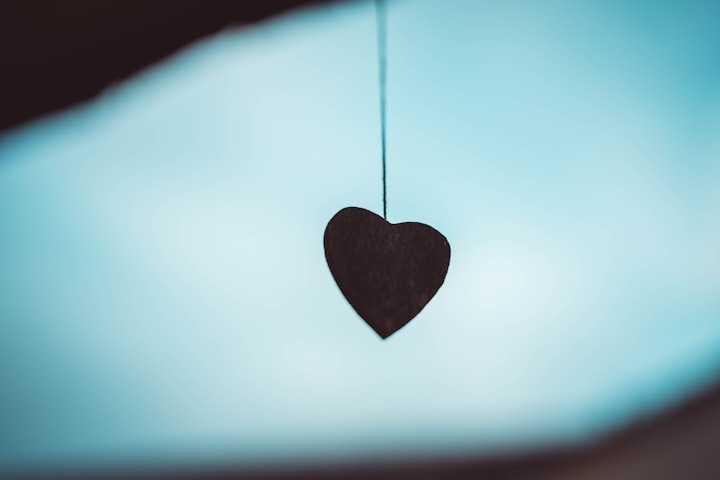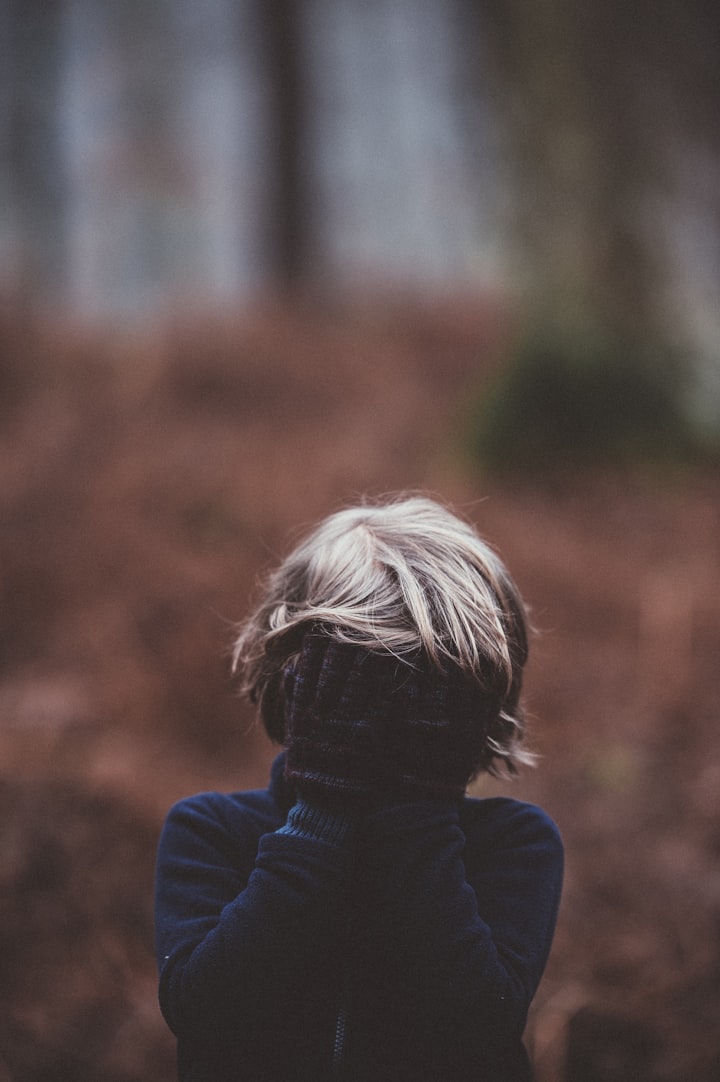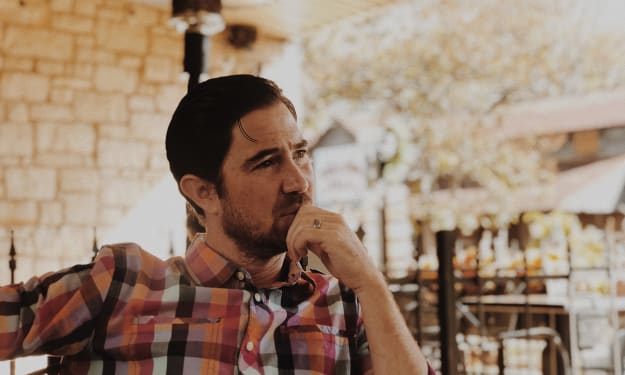Becoming a Divorcee
Life changing breakups don't have to be life ending

Recently I saw a photograph of my best friend’s wedding day, happily displayed on Facebook in celebration of her 19th wedding anniversary. I remember the wedding day very fondly, and clicked a ‘like’ on the photograph, wrote a comment to my friend, congratulating her and her husband, and sending my love to them all, with a big, happy exclamation mark at the end. The day the photograph was taken, 19 years ago, I too was a young newlywed, having married my first husband not quite three months earlier. My happiness towards my friends on the celebration of their anniversary was honest and genuine – they are wonderful people, and I feel fortunate to be able to call them friends - but I have to admit, I was left with a strange, initially unidentified feeling for the rest of the day. My stomach felt knotted, and I couldn’t quite put my finger on what was causing it. That evening, my husband was out, and my daughter had gone to bed, and I gave myself some time to consider the strange, heavy feeling that had afflicted me all day, and I found I could identify its root. My own first marriage, begun in the same year as my best friend’s 18-year success story, sadly ended after 10 years, and it was my prickling feelings of failure that were causing the grey mood I had been experiencing all day.
Nobody goes into marriage with an “oh well, let’s give it a try” attitude. Everyone believes in those heady early days that it is a decision for life, of course, and the feelings of excitement and wonder at what the future is going to bring are overwhelming, and my first husband and I were no different. Admittedly we were young, by today’s standards at least - I was 22, he 24 – but we were very much in love, and any nagging doubts about the future, on either of our parts, seemed easily overcome, as we found ourselves wrapped up in the business of buying a house, making wedding plans and booking the honeymoon. But, looking back, with all the cynical knowledge and hindsight of my older self, there were early signs that we were probably being too hasty.
Ten years on, we had experienced more during our young marriage than a lot of couples experience in a lifetime: a mental health-related hospitalisation; a Court trial; the shock loss of an absolutely beloved and adored dog; a round of IVF (happily resulting in a longed-for daughter). However, I had to admit, finally, that we had outgrown each other. With a heavy heart, I told my husband I wanted us to part, and we began the complicated, and at times messy, process of dismantling the trappings of a life we had built together. The sadness was devastating.
And as I contemplated those days, at a distance of almost 10 years into the future, an unexpected feeling struck me. The overwhelming feeling that permeates the memories of those dark days, post-separation, is immense loneliness. As I allowed myself to recall the memories, and feel the pain, I was suddenly acutely aware of a surprising reality - with some sadness, I realised that I had received few phone calls from friends during that period, and even fewer visits. I count myself fortunate to have good friends, albeit few in number; I have never been the sort of person to have a big group of friends. And so, I wondered what reasons had there been that these lovely, committed friends melted into the peripheral of my life, at the very time when I needed them most? The answer I came up with was a simple one. Divorce, I think, is feared like an infectious disease. I have no doubt that it is a subconscious feeling, and that my friends did not simply and deliberately abandon me. But I think that there was perhaps an underlying terror that whatever this was that had happened to me and my husband could somehow ‘jump across’, like a virus, and infect their own marriages. I think there was a fear that this ‘infection’ might expose a fragility in their own stabilities. That if they got too close, they risked the same fate. Perhaps it exposed the fact that happiness is precarious, that if it could happen to us, it could happen to anyone, and that was a frightening prospect.
I realise that it is hard to know what to say to someone when their life is falling apart – it is the same way with a person who is grieving. After all, the breakdown of a marriage is a death of sorts. But it is at these times when people need friends the most, even if they don’t know it themselves. I have no wish to saddle all the blame on my friends. I am stubborn and find it incredibly hard to reach out and ask for help, and I realise that I fooled myself into thinking I was ‘fine’.
I am remarried now, and my ex-husband and I have a good relationship, and the relief of my friends is palpable – the plague is over – I am no longer infectious. If the subject of my divorce ever comes up, it is in the vein of words such as ‘you’re such a strong person’, or ‘well, I knew things weren’t right with you two’. My friends congratulate me on a job well done in reference to my now-friendship with my ex-husband, and comment on what a wonderful thing it is to see two ‘divorced people’ getting on so well – how nice for our daughter! That is true, and I am proud of what we have achieved; he even came to my surprise birthday party organised by my husband. But what those who comment so positively don’t realise is that it didn’t ‘just happen’. It is the result of a journey filled with an incredible amount of pain, sadness, and tears. There were, at the beginning, many arguments between us, about practical things, about emotional things, about fault and blame. There were quiet, painful hugs, as we tried to support each other, and felt not only our own but each other’s pain, and a strange sense of wanting it to hurt less for the other. It took plenty of crying myself to sleep at night, of working things out, of torture as we sorted through a house full of ‘stuff’, of ten years-worth of memories and holiday photographs, of ornaments and trinkets we had lovingly bought together.
My daughter was just three when we separated, when my life changed beyond all recognition. I returned to work; I had to rehome my two beloved dogs, and explain that decision to my daughter; and I had to move out of my home. And as for being strong – what other choice did I have? I had a daughter who needed me, a life to rebuild – so I carried on. I’m not sure if this can be classified as being strong, there simply was no other way. Perhaps they mean that I never asked for anything, and this, too, is true. So maybe independent is a more fitting word than strong. There were days I felt anything but strong. Some days, when my ex-husband would pick our daughter up to take her to his new home for a weekend, I would wave her off with a huge smile on my face, then spend the next two hours laying on her bed, crying, holding her cuddly toys and her pyjamas, and wanting nothing more than to hibernate for the next two days, until she was home again. But I didn’t reach out to my friends, and I think that even then, I knew on some level that there was that underlying feeling of unease around my situation.
The life changes were huge for my ex-husband too, but in the way that still seems natural to human beings, the male / female roles kicked in, and it was a completely different set of changes and challenges for him; our experiences were markedly different. His consisted of drunken, tearful phone calls to me in the middle of the night after he had gone drinking after work. Sometimes he would shout at me, the panic in his voice obvious, that I would not and could not understand what it was like for him to know that in the future he wouldn’t see his daughter every day, accusing me of abandoning him like his own mother had. His was a process of falling off a cliff, hitting the bottom, and then slowly climbing up again, while mine rather more resembled a calm, slightly-rippling-on-the-surface stream, hiding a wild, whipping, terrifying current underneath.
Looking back to those times is hard, and I don’t go there too often. I do have one person who was there through my whole divorce journey - my mum was then, and remains to this day, my closest and most reliable ally. We are a team, and I don’t think I would have survived it without her. She seems to have a remarkable instinct for knowing when to give me her words of wisdom and support, and, just as importantly, when to not.
Writing this has given me a certain peace. I had not until now allowed myself to acknowledge that there is a hangover to my broken marriage, a hangover laden with feelings of guilt and failure, but also of loneliness and regret that I did not lean on my friends, and ask for their emotional support. Being married again has had a distancing effect, and sometimes my first marriage seems like a different lifetime. And yet we will forever be connected, my first husband and I, bonded for eternity by the love of our daughter. Despite the pain and heartache, I wouldn’t change the past. There were plenty of happy times, and it is a part of my life that has shaped me into the person I am today - and it made me a mother, by far the most important role I will ever fulfil. If I am even half the mother my own mum is, I know my daughter will be fine.
The joy I have found in my second marriage has helped me to heal; I was so young when I first married, and realise now that I had not yet matured, and although it sounds like a cliché, I truly didn’t know exactly who I was. My husband now shares my interests, interests I did not even know I had at 22. He has helped me to grow as a person, has teased out an intellect I had hidden and not allowed myself to express, and has even encouraged me to pursue a degree, something I would never have dreamed I was capable of. And the message I share with anyone experiencing a life-changing break-up is that there is a life beyond the hurt and pain, and while that period of your life will always be a part of who you are, happiness can and does triumph.






Comments
There are no comments for this story
Be the first to respond and start the conversation.